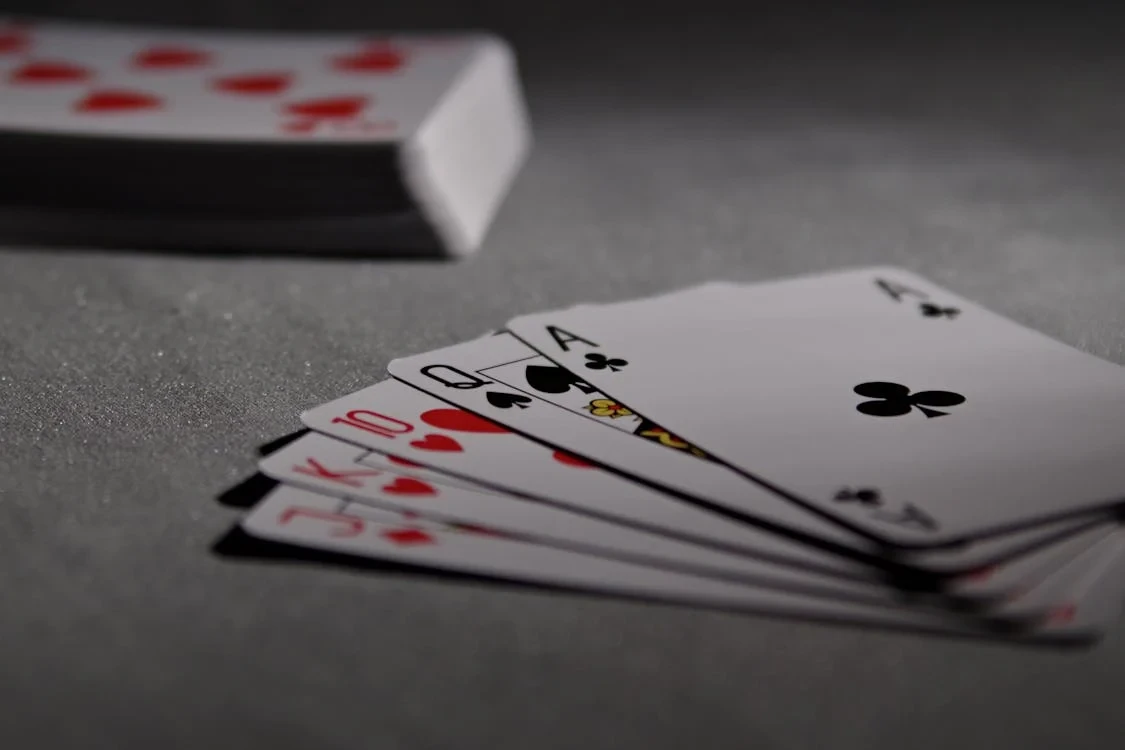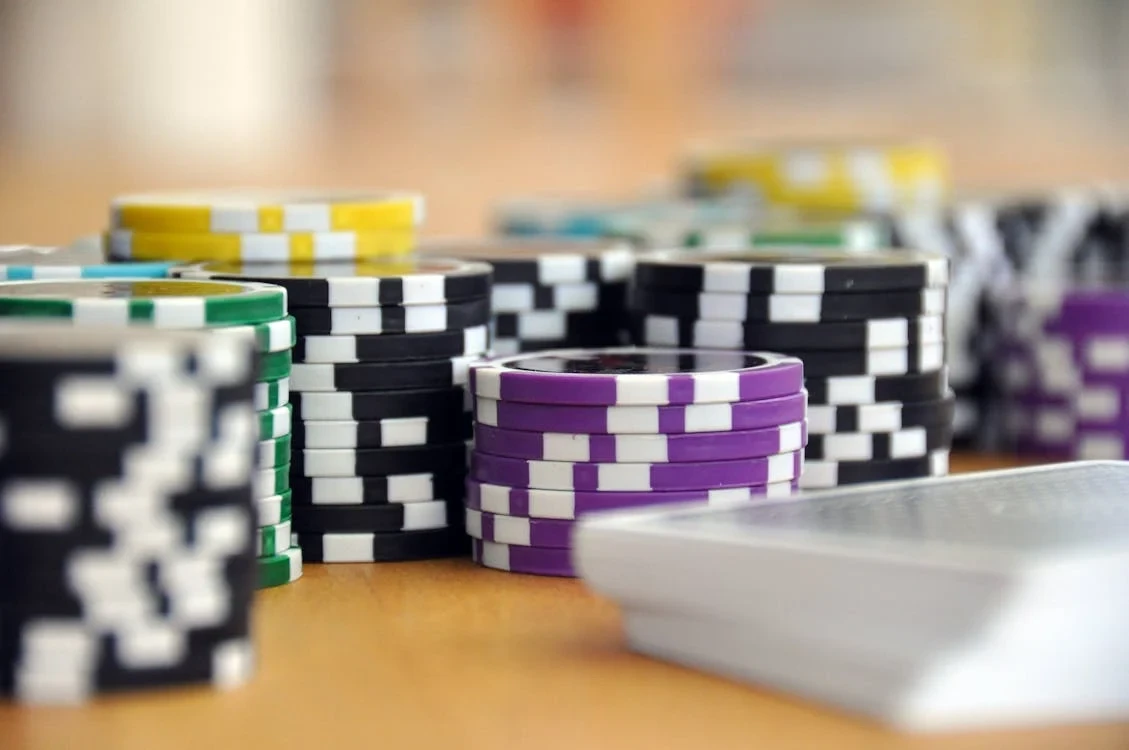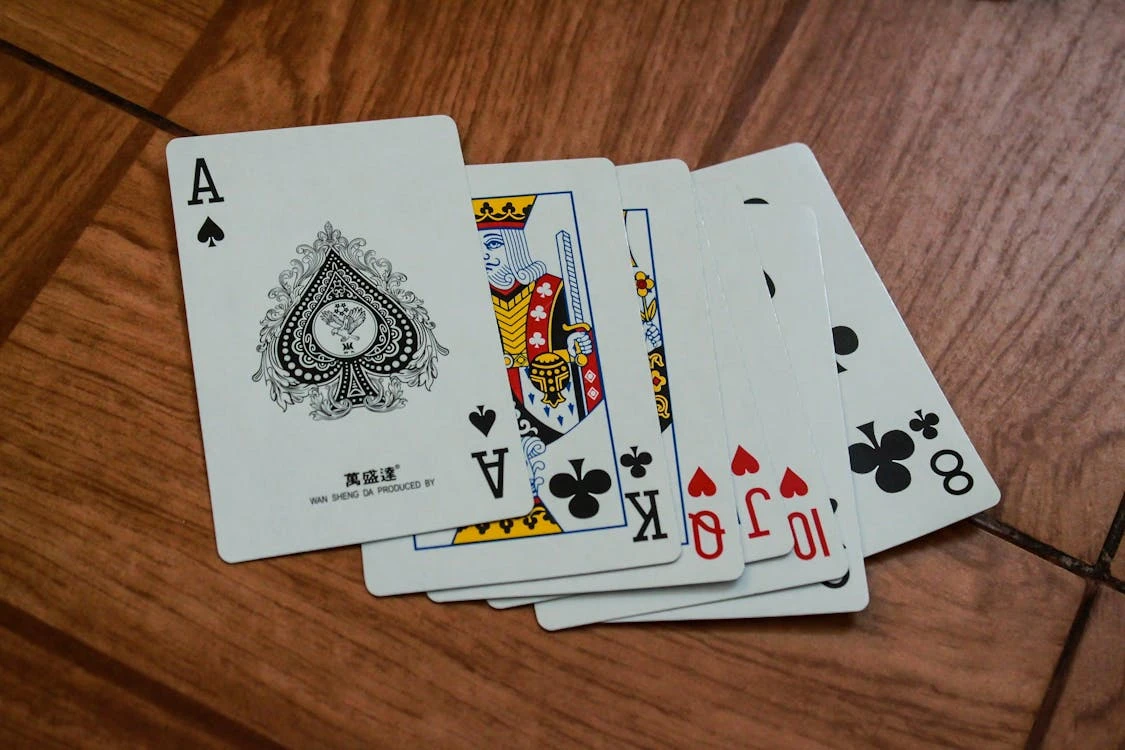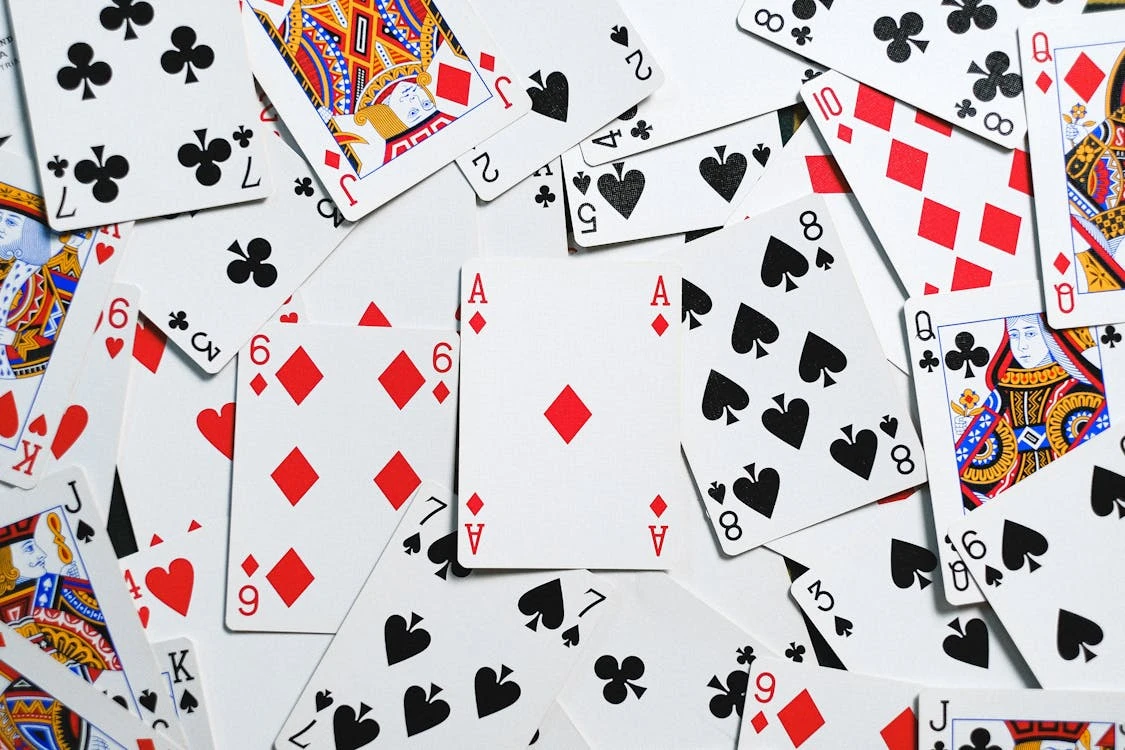Mastering the Art of Winning at Poker: Tips for Success
A game of luck, strategy, patience, aggression, and social understanding and manipulation, poker is as complex as it is popular. Indeed, it’s popular in part because of its complexity, as well as the feeling of stakes mattering with each and every hand. However, to go from simply enjoying a hand of poker to being able to win them, and to do it consistently requires effort and practice.
Here, we’re going to look at some of the aspects of improving your game that you should keep in mind, and what you should be practicing if you want to win more often.

Mastering Poker Strategy
First of all, you need to make sure that you have a good mind for poker strategy. The first step is getting out of the emotive and reactionary space that most players start in, to begin thinking more strategically, first and foremost.
Managing Your Bankroll
One of the most important aspects of mastering poker strategy is effectively managing your bankroll. Your bankroll is the money set aside solely for playing poker, and managing it wisely prevents you from risking too much at once. The key is to play within your means, keeping in mind that poker is a game of variance. You will experience ups and downs, and having a proper bankroll allows you to handle losing streaks without going broke. A solid rule is to never bet more than 5-10% of your bankroll in a single game, allowing you to ride out bad luck while staying in the game.
Don’t Jump Into Uncertain Hands
There are times where you might be tempted to stay in a hand simply because it seems promising or because you’re curious on how it might go. While you may occasionally fold on winning hands by playing cautious, it pays to fold if you’re not certain about the strength of your hand. Too many players think that folding is a sign of weakness, but by throwing away marginal hands rather than wasting your money on them, you improve your chances of staying in the game long enough to get more winning hands.
Play Defense on Blinds
When you’re paying the blinds, you are already invested monetarily in the game. As such, it’s important to play defensively. You’re already at a disadvantage, so you should make marginal defenses to protect your chips to avoid them being stolen. Of course, weak hands are still not worth playing big on. Don’t put good money after bad, as they say.
Avoid Getting Too Aggressive
Aggression can be effective in poker, but only when applied wisely. Over-aggression can lead to significant losses if you don’t have the cards to back it up. Players who are too aggressive often find themselves overcommitting to hands, bluffing too frequently, or betting recklessly. It’s important to balance aggression with caution, carefully choosing when to bet big and when to dial it back. Controlled aggression allows you to keep your opponents guessing without putting yourself at risk of massive losses.
Only Bluff When It Matters
Bluffing is a big part of poker, but it doesn’t mean that you bluff all the time. Only invest your time and energy into bluffing when it has the opportunity to yield the most impact, not on tiny pots. Otherwise, observant players will be able to predict your bluffs easily. You can decide to bluff more aggressively when you sense weakness, but don’t be overeager.

Essential Poker Tips
Of course, strategies are only effective if you know how you’re supposed to be using them in the first place. Here, we’re going to look at the essential poker tips that you should know at a base level so that you can build your strategies on top of them.
Know The Importance Of Position
Your position should be one of the key determining factors in your strategy. A late position (acting after other players) gives you a big advantage, letting you see how others act before deciding to go aggressive. In earlier positions, you should play defensively to begin with, since you have an information deficit.
Play Ranges, Not Hands
A common mistake among beginners is to focus too much on individual hands rather than thinking about ranges. Playing ranges means considering the variety of hands your opponents might have based on their actions and betting patterns, rather than focusing solely on your cards. By thinking in terms of ranges, you can make better decisions based on probabilities, not just specific cards.
Play Fewer Hands, But Play Them Aggressively
Don’t play too many hands. You do not increase your chances of winning by playing more and more hands, but by surviving more hands. Otherwise, you’re spending chips on hands you’re not as likely to win. When you do spot a good hand or table situation, that’s when you pursue it aggressively. Very, very occasionally can you bluff a bad hand into a winning position, but don’t make that your go-to strategy, by any means.

Improving Your Poker Skills
The more you improve and practice your poker skills, the more confident you are going to be at the table. This confidence and understanding of the game is important, as it allows you to keep a cool head that results in being able to implement strategies. Let’s look at some tips for improving those skills.
Practice and Learn
Practice makes perfect. Playing regularly, whether in person or online, helps you gain experience in different scenarios. That said, you should try to play mindfully, reviewing your games after the fact, analyzing your mistakes, and recognizing opportunities. Everyone has errors. Being able to see them and learn from them is what separates good players from the rest.
Study Experienced Players
Watching and studying experienced players is one of the most effective ways to improve your poker game. Observing how professionals play, whether on televised tournaments, online streams, or even in local games, can offer insights into advanced strategies. Pay attention to how they manage their chips, adjust their play based on position, and use psychological tactics to outmaneuver their opponents.
Pick Up Courses And Books
There are plenty of books that can help you learn more about poker theory, strategy, and psychology. While this guide is here to help you get a good grasp of how to win more often, poker is a very deep game, one that you can spend a long time learning. Reading a few poker books or even picking up a course can be a worthwhile way to drill that knowledge into your head.
Learn The Odds Of Hands
A basic grasp of the probabilities of poker is one of the single best skills that you can learn to improve your game. Having an idea of how likely you are to end up with hands can help you know when to play cautiously or defensively. There are online tools that can help you calculate the chances of getting hands based on what you’re holding. Use these to study and memorize probabilities.
Start Reading Opponents
Developing the ability to read your opponents is a crucial poker skill. This involves paying attention to their betting patterns, body language, and tendencies. Over time, you'll begin to recognize when players are bluffing or when they have strong hands based on how they behave during different hands. Even online, where physical tells aren’t available, patterns in betting and timing can reveal a lot. The more you practice reading your opponents, the better you’ll get at predicting their moves and adjusting your strategy accordingly.

Strategies for Winning Poker Games
Once you have an idea of how to build and sharpen your own skills, it’s all about putting them into practice against other players. Knowing your hand and how you should play based on that is the beginning, but here are tips that help you when you’re facing others across the table.
Play Patiently
Patience is vital when playing poker. Being overly eager to get into a hand is the sign of a beginning player. Waiting for the right opportunities is typically what yields results. This means understanding that folding is a sign of discipline, rather than weakness, and being willing to do it more often. You also have to know when to cut your losses, pulling out of hands you’ve committed to once the situation turns against you. Again, playing fewer hands means surviving more rounds, which increases your chances of getting a strong hand you can play aggressively.
Make Mental Notes Of Player Reactions
A key part of poker strategy is observing your opponents closely and making mental notes of their reactions. How players react to winning or losing hands, how they behave under pressure, and their betting patterns are all valuable clues that can give you an edge. For example, some players may bet strongly when they’re bluffing but remain quiet when they have a strong hand. Recognizing these tendencies and keeping track of them will help you make better decisions later in the game, particularly when facing these players in crucial moments.
Learn To Semii-Bluff
Semi-bluffing combes bluffing with playing the odds. Sometimes, you might have a hand that currently isn’t that strong, but the story of the table makes it clear or at least likely that no one else has a strong hand, either. Playing your potential range strongly applies pressure, while also keeping open your opportunity to develop a strong hand and win outright. You want most of your bluffs to be semi-bluffs, rather than trying to play an outright weak position.
Know When To Use 4-Bets
4-bets are when a player re-raises after other players have already raised and re-raised again. The consecutive raises can drastically build the stakes of a hand, which can be an effective show of strength, and can also be a strong bluff if you think that a player is bluffing with their own hands. Again, this should be used sparingly, but you should know when to pull it out.

Elevating Your Poker Game
An understanding of the skills necessary to play and the strategies that can help you push the other players and your own position is the foundation of poker skills. However, there are further steps that you can take to keep elevating your own game so that you don’t fall as easily to other players’ strategies.
Be Consistent In Your Strategies
Consistency is vital for elevating your poker game. Developing a sound strategy is important, but sticking to it through highs and lows is even more crucial. Often, players abandon their strategies during losing streaks or after a few bad hands. This inconsistency can lead to erratic play and poor decision-making. Once you’ve found a strategy that works for you, whether it’s playing tight-aggressive or favoring bluffs in certain situations, it’s important to stay disciplined and trust the process. Adapting to opponents is necessary, but don't stray too far from your core principles.
Know Your Player Types
Being able to pick out the different types of players in your game can offer you an advantage. Aggressive players are those who play loud and play often, raising frequently, applying pressure, and pushing other players, while more passive players will call or check in most scenarios. Know which players are which so you can start acting based on predictions of what they might do. Against aggressive players, stay cautious until you have strong hands, using their tendency for aggression against them. With passive players, apply pressure to see whether or not they are strong enough and to start betting seriously before deciding whether to stay or fold.
Keep Emotion Out Of Your Game
Luck and strategy aren’t all the poker rewards. Temperament is crucial, too. Avoid being baited into emotional reactions, whether that’s riding high after a win or being frustrated after a loss. Be calm, regain your focus, and make decisions based on your hand and the table, not your own mood.
Practice With Inexperienced Players
Aggression can be a useful tool, particularly when playing against inexperienced or more passive players. Newer players often don’t know how to handle aggressive betting, especially when they don’t have a strong hand. By taking control of the action through bets and raises, you can force them into uncomfortable situations. This puts them on the defensive, leading to more folds and missed opportunities on their part.

Top Tips for Poker Success
Observe More Aggressive Opponents
When you’re faced with a more aggressive player, don’t try to get into a match of dominating the table. Instead, look for the counter-strategies that take advantage of their aggressive nature. You may be able to spot patterns or tells that match when they are bluffing or committing too hard to a hand. If you don’t get baited into going head-to-head with them, you will start to see bets that don’t make sense for the position of the table. That way, you can then trap them when you have a strong hand worth playing against them.
Put the Pressure on Passive Opponents
Passive opponents often miss opportunities to bet or raise when they have a decent hand, preferring to play it safe. You can take advantage of this by putting them under pressure with well-timed bets and raises. Because passive players are more likely to fold or call without raising, you can control the pace of the game and win small pots consistently. Be cautious, however, when they suddenly start betting or raising, as this usually indicates a very strong hand.
Understand That Most Hands Are Losers
Statistically speaking, most of your hands are not going to be winners. If you don’t internalize this fact, you can end up getting to discouraged after playing through multiple losing hands. Don’t overestimate how much you’re going to win each hand. This leads to chasing bad cards and losing chips consistently. Instead, know that getting through bad hands is more likely to end up giving you the chance to play good hands. Know when to fold, save your chips, and stay in the game.
Wait for Your Odds, Don’t Force Them
An observant player will sometimes be able to spot when an opponent is bluffing with a bad hand in a weak position, making a bluff the right strategy. For the most part, however, waiting for favorable odds is your best chance of success. Make use of semi-bluffs, as mentioned, to stay in the game when your chances of developing a winning hand are high, but don’t overcommit to hands that simply aren’t showing up. Sometimes, this will mean passing up hands that seem tempting.
Don’t Get Too Attached to Your Favorite Hands
Everyone has a favorite hand or set of cards they feel particularly lucky with, but it’s important not to get too attached to them. Poker is about playing the right hand in the right situation, not just your favorites. Whether it’s pocket aces or a suited connector, sometimes your favorite hand simply won’t have the right odds to win. Getting attached to certain hands can cloud your judgment and lead you to make poor decisions when you should be folding.
Winning Techniques for Poker Players
A big part of winning in poker is always having a reason to take your next action. If you are having trouble deciding what the best next move might be, here are a few simple pointers, or good reasons, to pursue a certain course of action.
Good Reasons to Raise
- Raising the pot when you have a good hand, forcing weaker hands to fold or to pay to see more cards, increasing your potential winnings
- Protecting your hand, especially if there are several potential draws on the board that could give you or an opponent a better hand
- Raising early can help you see which players are more aggressive and which are more passive, helping you develop long-term strategies
- Serving as a bluff or a semi-bluff if you believe that your opponents have weak hands, pushing them out of the pot
Good Reasons To Call
- To see the next card or showdown when you’re not confident enough to raise
- To keep the game rolling after you have a strong drawing hand, and staying in will help you potentially complete your hand
- To control the pot size, avoid giving opponents too big a win when you suspect they might have a better hand
- To gather more information about your opponent’s strength without committing too many chips, building your long-term strategy
Good Reasons To Fold
Folding is often the wisest move, particularly when you're holding a weak hand or the odds of improving your hand are low. One of the best reasons to fold is when an opponent’s raise indicates they likely have a much stronger hand, and you don’t have enough equity in the pot to justify calling. Folding early can save you from investing more chips in a losing hand. Additionally, folding is essential when you're out of position, as being one of the first to act often leaves you at a disadvantage. Another reason to fold is when you’re facing a draw-heavy board and don’t have a strong hand. If your opponents are betting aggressively, the risk of them having completed a draw is high, and folding could be the best way to conserve your stack. Finally, folding helps you preserve your bankroll for better hands, maintaining your overall longevity in the game.
Conclusion
Poker is a multi-faceted, dynamic game, in which the situations and the right moves can change from moment to moment. Take into account the tips mentioned above and be sure to get plenty of practice in so that you can be a much more effective poker player across the board. Developing your basics, understanding the probabilities, and developing an understanding of the players around the table is going to help you become much more competent and confident, allowing you to win at poker a lot more often.
Seasonal Poker Games
More Games
Free Poker News
Disclaimer
DISCLAIMER: The games on this website are using PLAY (fake) money. No payouts will be awarded, there are no "winnings", as all games represented by 247 Games LLC are free to play. Play strictly for fun.

































